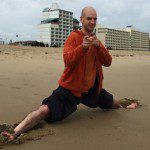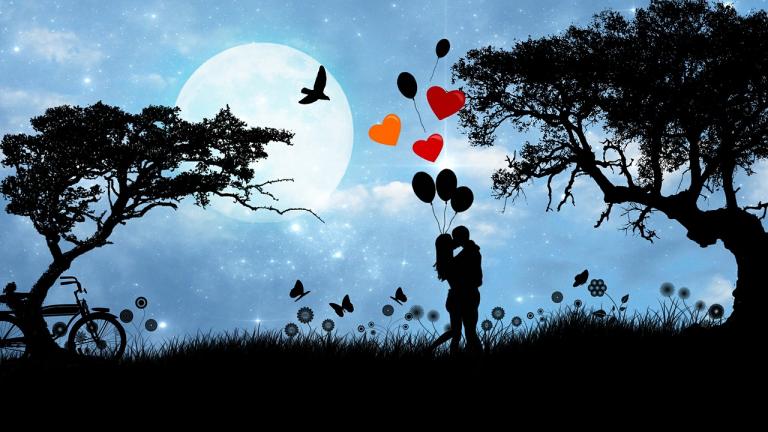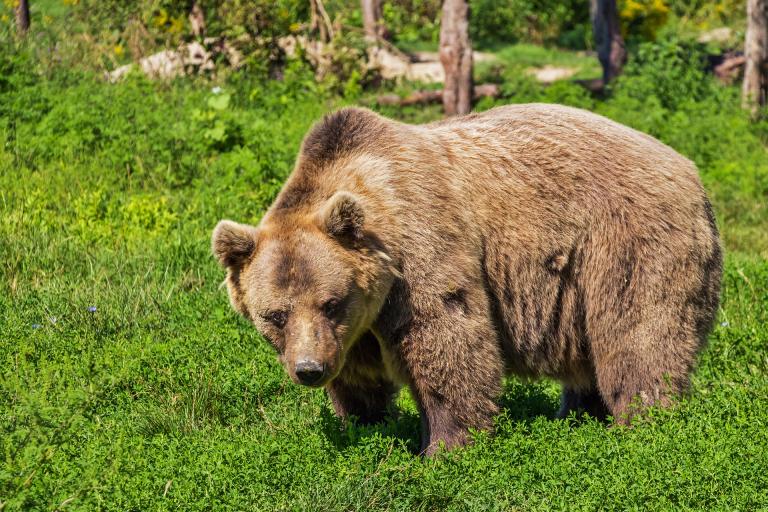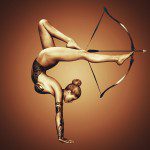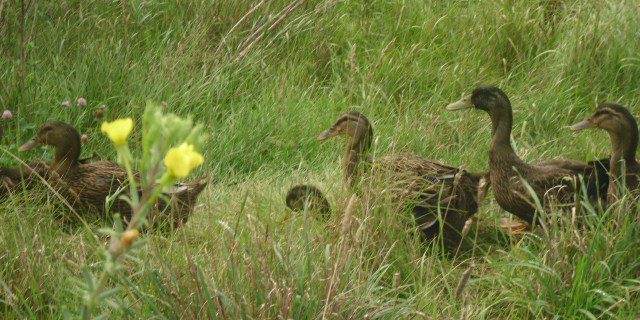
Okay, so full disclosure: this post is mostly just an excuse to post pictures of my ducks, but that’s in both of our best interests because looking at ducks will make you happier than reading most of the stuff that you’ll find on the internet. In fact, for those of you who live in urban settings and who are deprived of the joy of regularly interacting with ducks in their natural environment, this will be an opportunity to enjoy them by proxy. As St. Paul says, “if one part is honored, every part rejoices with it.” (1 Cor. 12:26) Let us therefore honour brother duck and rejoice.
As the Psalmist tells us, all of Creation gives glory to the Lord. Ducks do this especially well. It’s not just that they’re exceptionally beautiful birds, they’re also edifying. I’ve had chickens in the past, and chickens are fine and all but they’ve been bred to the point where they bear a fairly limited resemblance to the pheasants and junglefowl from which they are descended. The desire for uniform egg production has produced a bird that seems to have been somehow truncated – reduced to its functionality. They still have awesome dinosaur feet and cool reptilian eyes, but they just can’t compete with ducks.
Ducks are beautiful. Mine are Rouens, which means that they’re descended from Mallards and also that their forebears hail from the same town as St. Joan of Arc. Right now they’re going through a kind of funny stage of development where the males are losing their dark head feathers and putting on a glorious crown of emerald green. They look remarkably dumb during this process. It’s a great reminder that a lot of the time things that look awkward, stupid or embarrassing are actually an important part of the journey towards splendour.
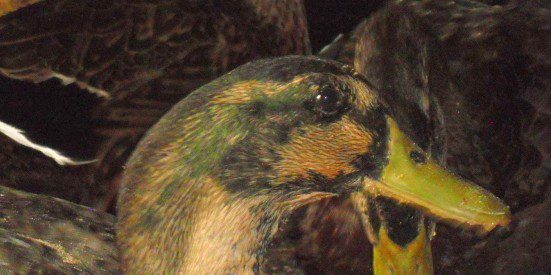
When the ducks first came to live with me last May, I had eleven of them. I’m now down to eight. The three that we lost were all lost within a day or two of each other, and for a fairly straightforward reason: they were errant ducks. Ducks are not especially formidable animals, and if a predator finds them alone they don’t last very long. That’s why they have an intense flocking instinct. Ducks that stay together survive, ducks that go off on their own do not.
There’s an obvious spiritual lesson here, especially in a world that is obsessed with the ideal of the the rogue individual, the “lone wolf.” Human beings, like ducks, are creatures that thrive in community. We were never designed to be solitary predators stalking in the wilderness. From an evolutionary point of view, the reason that the human race has been able to survive and succeed to a really extraordinary degree (given that we are basically fangless, clawless, armourless pieces of slow-moving meat) is that we are intelligent and social.
While we tend to emphasize the intelligence part of this equation, the truth is that the social aspect is more crucial in explaining our success. A single genius on his own in the woods will probably get eaten by wolves, and he probably won’t succeed in developing advanced mathematics. Much more than raw intellect, it’s our ability to communicate, to share information, to form communities and engage in cooperative efforts that form the bedrock of our acheivements.
Ducks, of course, do not produce civilizations, but they certainly do beautify a pond, and they are quite smart for fowl. Chickens do not learn to come when called, and they never get over the habit of pecking at your feet if you trespass on their territory – no matter how many times your presence indicates that they are about to be fed. My ducks, however, come up from their pond every morning quacking merrily to inform me that they have arrived. And when I go out and call them, they know my voice and follow me down to the barn for their breakfast.
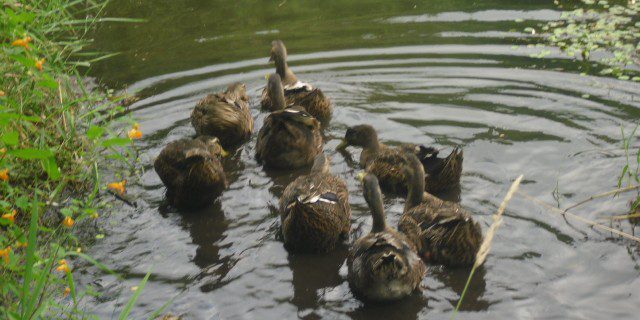
Photo credits: Melinda Selmys

